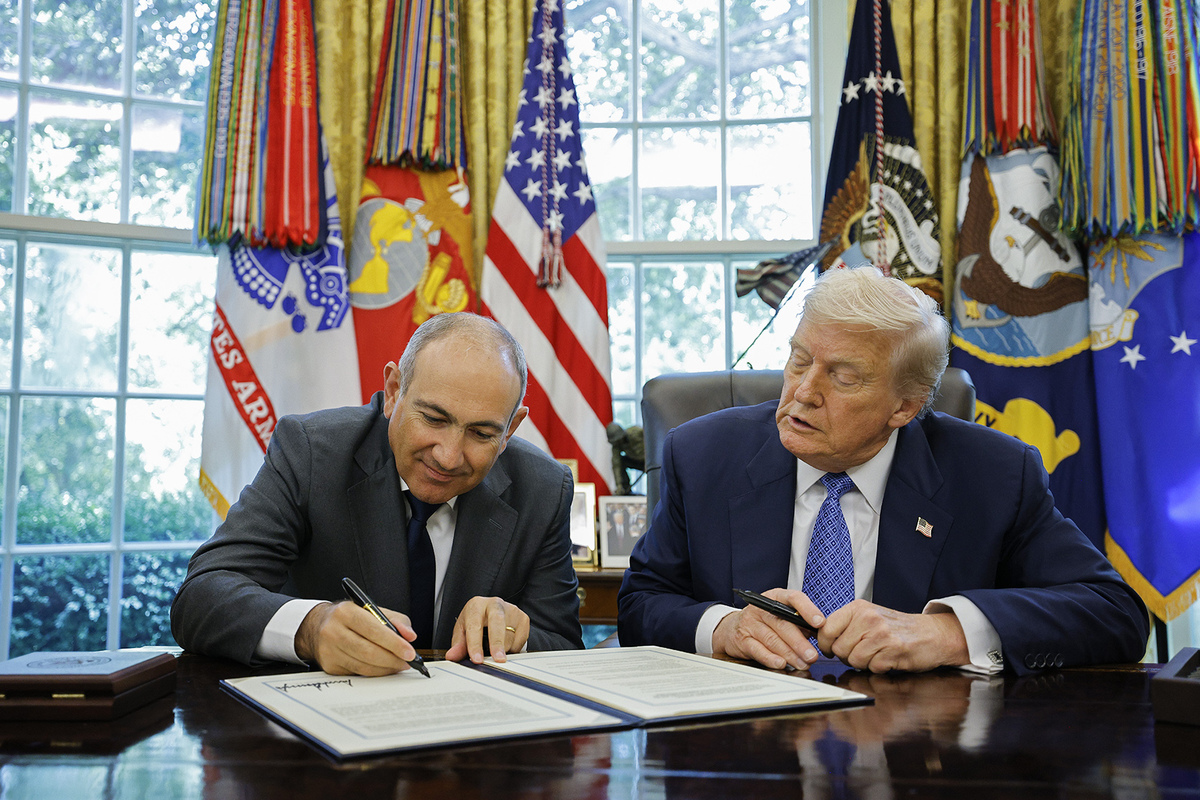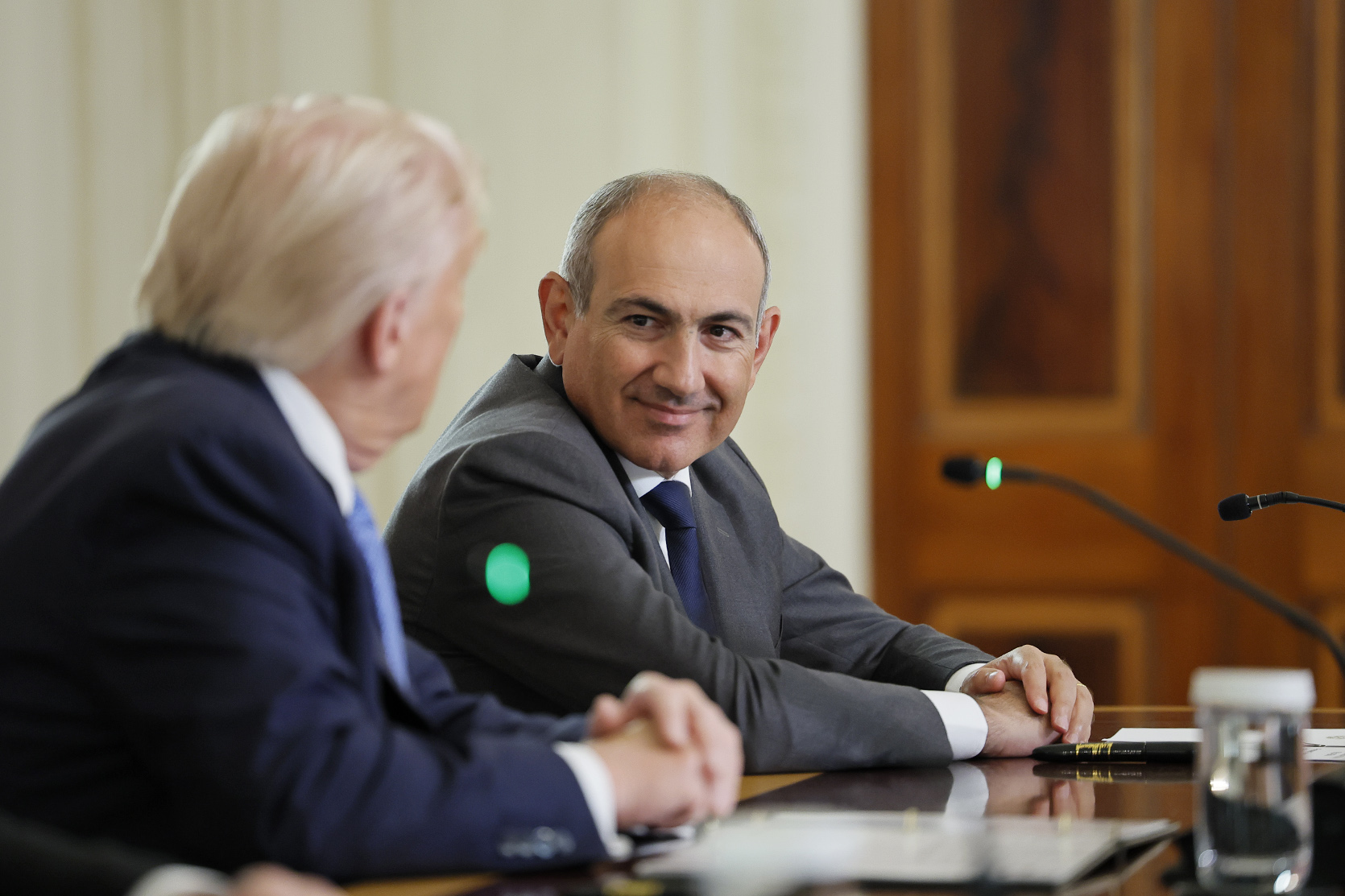Armenian and Azerbaijani NGOs meet in Yerevan: what to expect
Azerbaijani NGOs in Yerevan
A roundtable is underway in Yerevan, bringing together representatives of civil society from Armenia and Azerbaijan. The discussions began on 21 October, but information about them only surfaced this morning.
The Center for Security Policy Research says the talks focus on four key areas:
- the peace agenda developed after the Washington meeting on 8 August;
- steps to build mutual trust between the two societies;
- opportunities for stable economic cooperation in the South Caucasus;
- and prospects for direct and long-term links between civil society groups from both countries.
“It is quite likely that the discussion will touch on Armenia’s constitutional reforms and the link between signing a peace deal and changing the constitution. Baku sees this as a precondition for the agreement. Other issues usually discussed at the official level may also come up,” political analyst Robert Ghevondyan told JAMnews.
Ghevondyan noted that experts are meeting in Armenia or Azerbaijan for the first time, not in a third country. He also said the next round could take place in Baku, “if both sides agree.”
- PEACE Act or “Armenian lobby”? A bill has been introduced to US Congress to sanction Azerbaijan if it attacks Armenia
- US embassy staff ‘where possible’ attend trials of Armenians in Baku
- For the first time, Armenian National Security Service delegation visits Baku: what Yerevan expects
Attempts to bring together Armenian and Azerbaijani experts are not new. In 2022, talks on normalising relations took place in Moscow, initiated by Russian Deputy Foreign Minister Andrey Rudenko.
IIn 2022 and 2023, expert groups met in Georgia and the Netherlands. LINKS Europe organised the meetings with support from the European Union.
According to reports, the Armenian side included Stepan Grigoryan, Taron Ovannisyan, Gevorg Melikyan, Johnny Melikyan, and Beniamin Poghosyan. The Azerbaijani participants were Ahmed Alili, Mekhman Aliyev, Shahla Ismail, Samir Mamedov, Ramazan Samedov, and Anar Veliev.
What’s being discussed behind closed doors: JAMnews uncovers the details
Political analyst Robert Ghevondyan didn’t name the NGOs that sent representatives to Yerevan or clarify who represented Armenia. He only said the participants were “people who can negotiate cooperation in different areas.”
He noted that Azerbaijan recently lifted its restrictions on cargo transit to Armenia and reminded that experts had already discussed this issue before:
“Yesterday something unprecedented happened — Azerbaijan announced that wheat will be delivered to Armenia through its territory. A few months ago, during a debate with an Azerbaijani expert, I suggested that Baku open a transit route. I said this could become a positive example of cooperation. And now it has happened.”
Ghevondyan said the roundtable in Yerevan focuses on several key topics in Armenia-Azerbaijan relations, including reopening transport routes, marking the border, and boosting economic ties.
When JAMnews asked where real progress could happen, he replied: “In every area of the negotiation process — transport, borders, economic cooperation, and more.”
If the talks go well, he added, the participants may even form a permanent working group.
Ghevondyan agreed that Armenian and Azerbaijani NGOs differ in approach and working style but rejected claims that all Azerbaijani peace advocates are in prison:
“There are people in Azerbaijan who cooperate closely with the authorities but still talk about peace and better relations with Armenia. Maybe they can do so because the government allows it, or maybe they find their own way to speak. But the main thing is that such people exist. We can talk to them about how to advise our governments and move the peace process forward — on both sides.”
Armenia-Azerbaijan relations progress
Azerbaijani President Ilham Aliyev announced that his country has lifted all restrictions on cargo transit to Armenia. The first shipment — wheat imported from Kazakhstan — will pass through Azerbaijani territory.
“This is a clear sign that peace between Azerbaijan and Armenia is no longer just an idea on paper — it’s becoming reality,” Aliyev said at a joint press conference with Kazakhstan’s president.
Yerevan welcomed the move. Speaking at the 5th Silk Road Forum in Tbilisi, Armenian Prime Minister Nikol Pashinyan said: “What seemed impossible a few months ago is now happening — grain from Kazakhstan is reaching Armenia through Azerbaijan and Georgia.”
Deputy Prime Minister Mher Grigoryan called the decision “a major step toward reopening regional trade routes, strengthening mutual trust, and advancing the peace agenda.”
Economy Minister Gevorg Papoyan added that the first wheat shipment will travel by rail from Aktau to Baku, and then continue through Azerbaijan and Georgia to Armenia.




















